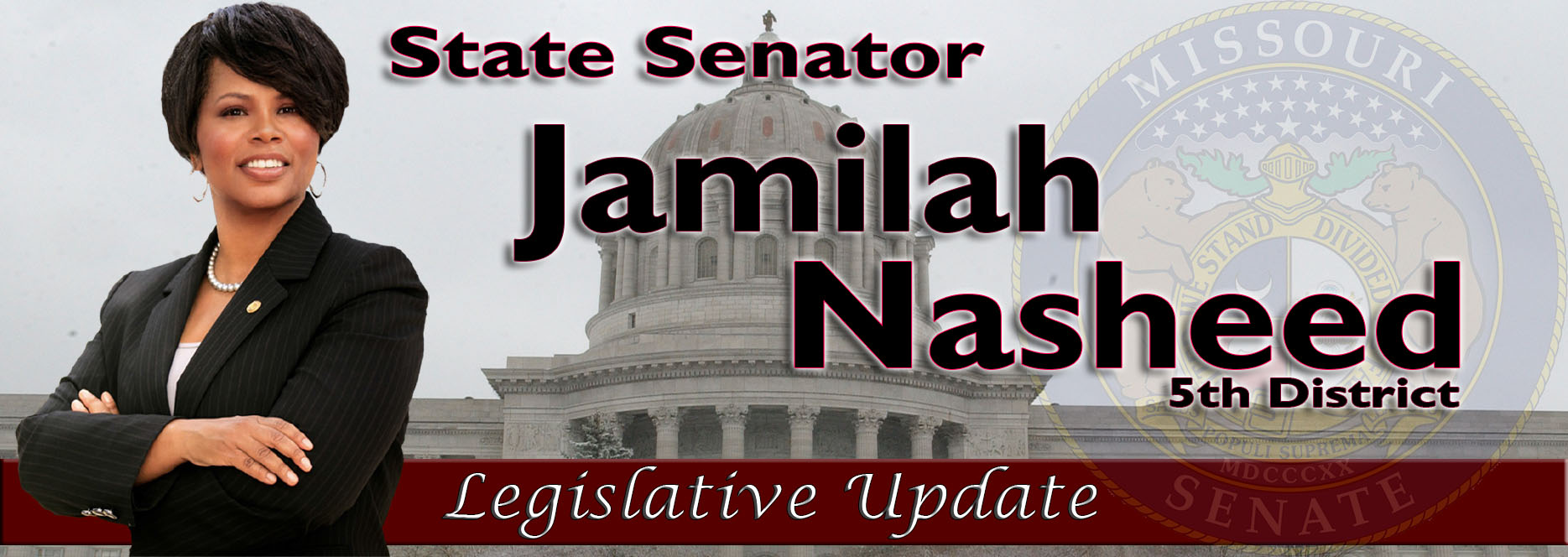
Legislative Actions and Information for the Week of April 1, 2019
| On The Floor
This week, the members of the Missouri Senate spent time discussing several important topics on the Senate floor. On April 1, the Senate discussed Senate Joint Resolution 1, a proposal modifying the initiative petition process. The initiative petition process allows citizens to participate in what is known as direct democracy, and propose legislative or constitutional changes and vote on them, without going through the Legislature. Senate Joint Resolution 1 attempts to change the thresholds for which these citizen petitions are placed on the ballot. For instance, the signatures needed for a petition to be placed on the ballot would be raised from eight percent of voters in six congressional districts each to 15 percent of voters in each of our eight congressional districts. Additionally, SJR 1 requires amendments to the Missouri Constitution to be approved by two-thirds of voters in order to go into effect, instead of a simple majority. Senator Nasheed opposes this resolution, believing it will only stifle the voices of average citizens and prevent them from getting the issues they care about on the ballot. This proposal was laid over and is pending further debate. On April 2, Senate Bill 292 was discussed. This bill would expand charter schools in Missouri to any charter county, or an urban school district, provided the proposed charter school sponsor receives a petition with enough support from the local community. Both St. Louis and Kansas City currently have charter schools. This bill was debated well into the following morning, before being laid over. On April 3, the Senate debated Senate Bill 44. This proposal authorizes sports wagering and other gambling opportunities throughout the state. One provision of SB 44 authorizes the State Lottery Commission to implement what are known as video lottery terminals (VLTs), which could then be placed in fraternal organizations, veterans’ organizations and truck stops. Under SB 44, VLTs would have to be under the supervision of an individual who is at least 21 years old, and anyone under the age of 21 would not be allowed to play. Among Sen. Nasheed’s concerns is how strictly illegal gambling would be punished and how best to ensure underage individuals do not gamble. Senator Nasheed also worries about the effect of expanding gambling opportunities for those suffering from an addiction to gambling. Lastly, on April 4, the Senate passed Senate Bill 108, dealing with tax increment financing (TIF). As the Senate debated this bill, Sen. Nasheed was able to add a portion of her Senate Bill 311 regarding the definition of blighted to SB 108. This amendment specified that in the City of St. Louis, a blighted area would be an area where the median household income was less than or equal to 200 percent of the federal poverty level. Senate Bill 108 now heads to the Missouri House of Representatives. Bills and Committees Senate Joint Resolution 22 – This proposed constitutional amendment requires any changes to the Missouri Constitution regarding the form of government for one or more counties, cities or towns to be approved by a majority of voters in the affected area in order for the change to go into effect. Practically speaking, if this proposed constitutional amendment is approved by voters, any merger between the City of St. Louis and St. Louis County that modifies the state constitution would have to be approved by a majority of city and county voters in order to be implemented. Senate Joint Resolution 22 was heard by the Local Government and Elections Committee and several people came to testify in support from both St. Louis City and municipalities in St. Louis County. “This is perhaps the most important piece of legislation I have filed this legislative session,” said Sen. Nasheed. “This resolution is about local control. It is about who will decide the future of St. Louis City and St. Louis County. I believe we must have the opportunity to plot our own course, to determine our own futures, and SJR 22 ensures that right.” Appropriations The 13 budget bills approved by the Missouri House of Representatives were referred to the Senate’s Appropriations Committee. The committee will now begin examining and considering the House’s budget proposal. |
